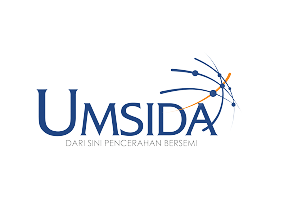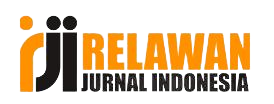Adaptive Leadership and Policy Relevance in Encouraging Citizen Responses Regarding Local Cultural Education and Preservation Programs in West Java
Kepemimpinan Adaptif dan Relevansi Kebijakan dalam Mendorong Respon Warga Mengenai Program Pendidikan dan Pelestarian Budaya Lokal di Jawa Barat
DOI:
https://doi.org/10.21070/jkmp.v13i2.1836Keywords:
Adaptive Leadership, Policy Relevance, Education Programs, Cultural Preservation, ChangeAbstract
This study aims to analyze the influence of adaptive leadership style and program relevance on citizen responses to education and cultural preservation programs in West Java. The study employed a quantitative approach with a causal explanatory design, using a survey method with 400 respondents selected using proportional random sampling from Bandung City, Cirebon Regency, and Garut Regency. The research instrument was a questionnaire based on a 1–5 Likert scale. Data analysis was performed using multiple linear regression, including classical assumption tests, t-tests, F-tests, and coefficients of determination. The results showed that adaptive leadership style and program relevance simultaneously and partially had a positive and significant effect on citizen responses. Partially, program relevance was found to be more dominant (β=0.581; Sig. 0.000) than adaptive leadership style (β=0.272; Sig. 0.012). The Adjusted R² value of 0.435 indicates that the model is able to explain 43.5% of the variation in citizen responses, while the remaining 56.5% is influenced by factors outside the model. These findings confirm that the combination of adaptive leadership and programs relevant to community needs is an important foundation for increasing public participation.
References
Amnah, W. Z., Afni, S., Ningsih, W. S., Hanoselina, Y., & Syafril, R. (2025). Gaya Kepemimpinan Adaptif Sri Mulyani Indrawati dalam Pengelolaan Krisis Ekonomi Indonesia. Jurnal Ekonomi Dan Bisnis Digital, 2(4), 2277–2288.
Andhika, L. R. (2017). Evolusi Konsep Tata Kelola Pemerintah: Sound Governance, Dynamic Governance dan Open Government. Jurnal Ekonomi & Kebijakan Publik, 8(2), 87–102. https://doi.org/https://doi.org/10.22212/jekp.v8i2.867
Astuti, W., & Prijanto, B. (2021). Faktor yang Memengaruhi Minat Muzaki dalam Membayar Zakat Melalui Kitabisa.com: Pendekatan Technology Acceptance Model dan Theory of Planned Behavior. AL - MUZARA’AH: Journal of Islamic Economics, 9(1), 21–44. https://doi.org/https://doi.org/10.29244/jam.9.1.21-44
Erlangga, D. (2025). Inovasi dan Efektivitas Manajemen Pelayanan Publik dalam Mewujudkan Pemerintahan yang Responsif dan Berorientasi pada Kepuasan Masyarakat. Integrative Perspectives of Social and Science Journal, 2(5), 7846–7856.
Fahrub, A. W., Chailani, M. I., Latifah, K., & Arifin, Z. (2025). Inovasi Manajemen dan Kepemimpinan Transformatif Kelembagaan PAI. Journal of Nusantara Education, 5(1), 22–39. https://doi.org/10.57176/jn.v5i1.175
Gea, O., Aritonang, H. D., & Harefa, S. (2022). Peran Pemimpin Agama Berbasis Wawasan Pluralisme Dalam Merawat Toleransi Beragama di Indonesia. Jurnal Teologi Cultivation, 6(2), 47–63. https://doi.org/https://doi.org/10.46965/jtc.v6i2.1599
Hakim, M., & Samiyah. (2025). Dinamika Kepemimpinan Adaptif dalam Pengambilan Keputusan Strategis. Jurnal Akuntansi, Manajemen Dan Ilmu Pendidikan, 1(3), 111–123.
Hasanuddin, Meutia, K. I., Siagian, R., Widjanarko, W., Putra, C. I. W., Carlos, G. J., & Saobari, M. (2024). Transformasi Kepemimpinan Dan Dinamika Institusional: Membangun Tata Kelola Pemerintahan Yang Baik Melalui Reformasi Administrasi Publik. JEMMA ((Journal of Economic, Management and Accounting), 7(1), 68–81. https://doi.org/https://doi.org/10.35914/jemma.v7i1.2715
Hidayat, V., Irliawan, R., Rozan, M. A., & Saefulrahman, I. (2025). Peran Otonomi Daerah dalam Pelestarian dan Pengembangan Kebudayaan Lokal di Kabupaten Sumedang. Jurnal Kolaboratif Sains, 8(1). https://doi.org/https://doi.org/10.56338/jks.v8i1.6749
Ikhsan, M., Gunawan, Upe, A., & Moita, S. (2025). Peran Pimpinan dalam Meningkatkan Motivasi Kerja Kader Wahdah Islamiyah di Kota Kendari. Publica: Jurnal Administrasi Pembangunan Dan Kebijakan Publik, 16(1), 147–157.
Indriastuti. (2020). Memahami Pembaharuan Pelayanan Publik Untuk Mewujudkan Tata Pemerintahan yang Baik (Good Governance). Governance: Jurnal Kebijakan Dan Manajemen Publik, 10(1), 60–75.
Mahendra, M. B., & Oktaviani, R. M. (2022). This Determinan Niat Wajib Pajak Perspektif Theory of Planned Behavior. Jurnal Ilmiah Komputerisasi Akutansi, 15(1), 231–240. https://doi.org/https://doi.org/10.51903/kompak.v15i1.644
Pramanda, F. Y., & Priyatmono, B. (2025). Kepemimpinan Adaptif Dalam Menghadapi Dinamika Pemasyarakatan Modern. Jurnal Dinamika Sosial Dan Sains, 2(4), 670–676. https://doi.org/https://doi.org/10.60145/jdss.v2i4.153
Supriyono, & Adha, M. M. (2020). Membangun Kepemimpinan Berbasis Nilai-Nilai Pancasila Dalam Perspektif Masyarakat Multikultural. Jurnal Kultur Demokrasi, 9(2), 52–61.
Wilhelmus, O. R. (2025). Pendidikan Budaya Multikultural Sekolah Negeri. Jurnal Pendidikan Agama Katolik (JPAK), 25(2), 514–533. https://doi.org/https://doi.org/10.34150/jpak.v22i1.10 59

Downloads
Published
Issue
Section
License
Copyright (c) 2025 Sefti Nurannisa Ruswika

This work is licensed under a Creative Commons Attribution 4.0 International License.















